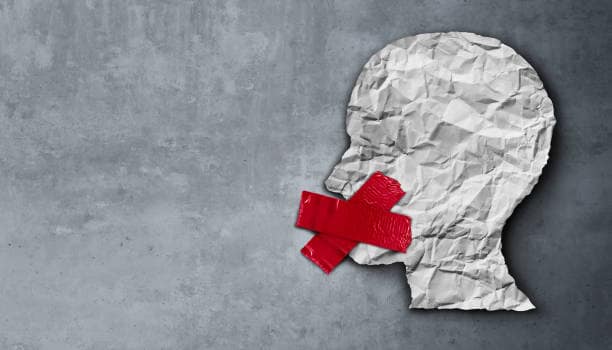Hearing the word censorship is enough to make most people stop what they’re doing for just a moment and take note. There’s a good reason for that too. Throughout the ages history’s greatest villains have used censorship in one form or another to achieve control over its people and the dissemination of information. And while South Africa has always held countries like Russia and China in high regard, it hasn’t implemented any of the stringent rules those dictatorships use to govern. However, yesterday, on 1 March 2022, an internet censorship bill was put into operation in South Africa
President Cyril Ramaphosa and Communications Minister Khumbudzo Nthsavheni believe that what you and I read and watch on the internet needs to be censored. Some of the more naive readers will think this is because we occupy a special place in the governments heart and they really only want what is best for us.
Even if that were true, which it clearly isn’t, the importance of having access to all sorts of information, offensive or harmful, trumps the need for censoring it, even if the intended outcome is to protect. Controlling the information your citizens have access to robs them of the ability to see various perspectives and make up their mind for themselves. Not to mention a little patronising insinuating your country’s citizens don’t have the mental acumen to decide for themselves what is good and bad.
In this world of ever-growing fake news, it won’t do any harm to have more fact-checkers monitoring content and exposing information being deliberately manipulated for political, propaganda or other purposes. There is a vast difference between fact-checkers and people policing what you may and may not see.The inexorable path is that censorship is soon followed by propaganda. Anyone arguing against that logic must explain what use preventing specific content serves if not to drive specially crafted narratives and propagate thinking methods the elites and those in power have carefully chosen for you.
One of the most important things to interrogate is motive; to see who has what to gain and who has what to lose. Usually it is those who are in support of bills meant to muzzle societies who have something to hide. And that’s my concern about this new piece of legislation.
For me, it’s all in the name: a censorship bill. The word censorship brings to mind oppressive regimes, and we don’t have to think long and hard to come up with them: North Korea, China, Eritrea, Russia, Iran, Cuba, Saudi Arabia, and others. Do you think those are great counties in which to live? You don’t see people packing their belongings and flocking to any of those places, do you? That is because there is no freedom in those countries.Their every move is policed and they cannot step outside their homes without the government watching. Nor are they able to complain about their circumstances simply because it will not be tolerated. Is that the sort of utopia you want coming to a town near you?
There are laws designed to protect a country’s citizens and then there are laws designed to benefit those in power. I think this censorship bill was designed for the latter.
The South African government has more skeletons than Najaf cemetery, and it is home to more than five million bodies. There’s not a pot this government hasn’t put its hands into. Even money sent to help the country through the pandemic was stolen by those in positions of power. Like a duck in water, the ANC is at home surrounded by corruption.
It would not surprise me an iota if the ruling party used this new bill to outlaw reporting abuse of power and corruption to which the government effortlessly clings; to gain absolute control of the country and monitor it with such efficacy that anyone sharing information of which the government doesn’t approve is swiftly carted away, while the laws designed to protect you remain impotent.
There are some welcoming the bill as it doesn’t technically infringe on free speech just yet – or it does but just not for everyone right now. As we’ve come to know in South Africa, laws can be stretched over time and before you know it free speech in its entirety will be illegal.
Without the freedom to say and think what you want, how is one ever to advance as a society? To quote Professor Jordan Peterson in his televised debate with Kathy Newman on Channel 4’s News interview “in order to be able to think, one has to risk being offensive”.
If it were not for the fact that North Korea doesn’t have Facebook or the likely scenario that Kim Jong-un cannot spell Ramaphosa, the little Rocket Man would almost certainly send his South African counterpart a friend request.
